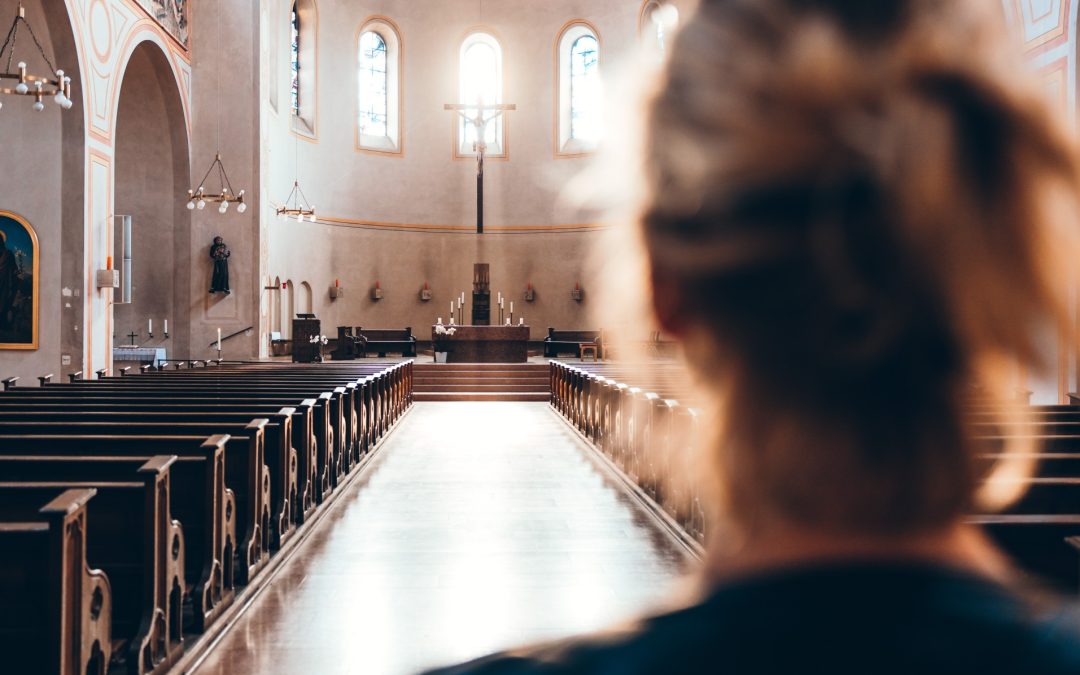Photo by Thomas Vitali on Unsplash
When people find themselves in a darker headspace, where do they turn to? If not their family or friends can provide them with light, can religion help? Is there a connection between faith and depression?
Depression and anxiety remain two of the most prevalent mental health issues today. The increased societal adversities result in people’s decreased mental well-being. People can only cope with so much, and when they’re exposed to issue after issue, with the uncertainty of how their future will be, there’s no questioning that they’re going to break down, one way or another.
When this happens, unfortunately, society only offers limited accessible means of coping.
People may seek companionship, leaning toward friends for reassurance and support. Some may spend more time with their families, hoping the familial comfort and love will ease their worries. These are the fortunate ones who have found healthy ways to cope. On the more unfortunate hand, others end up drinking or developing vices to drown their consciousness away.
Amidst these, where does religion stand in the equation? As a concept supposedly aimed at providing comfort and a sense of certainty to people, do faith and depression have any correlation?
Faith and Depression, What’s the Connection?
Religious people may find themselves struggling to make sense of depression or mental disorders. After all, as a Catholic or a follower of any religion, faith should become one’s guiding light toward clarity and away from mental problems. When God’s words and spiritual practices exist, people can’t justify why there are problems people can’t overcome.
Are they genuinely sick, or do they lack faith?
In religion, when people lay themselves down in genuine vulnerability before the eyes of God, they’re alleviated from any problems. Suffering is typically perceived as a mere result of one’s lack of faith. Does this perspective give religion a beneficial role against depression? Or will the thought of lacking faith hurt people’s mentality more?
Author Teresa Haven Pelinksi has shared her two cents about this debacle. Through establishing a ministry revolving around religion, primarily in praying and singing for people’s recovery, Pelinski has shared her struggles. She opened up about her belief that faith and depression are correlated, evidenced by her personal experience with depression. She expressed how her strong faith and belief that Jesus is with her through every moment helped her paint a little more color in her life, retrieving her faith and self-belief she once lost against her mental struggle.
Their Relationship, Proven and Expounded
Various studies have already examined the relationship between faith and depression or religious and mental health in general. Throughout these data, one thing is certain: religion does help with alleviating problems in people’s lives.
Religion and faith have long been associated with people’s health, stating that the more they engage in religious activities, the healthier and happier they become with faith-based coping proven to support people’s mental health. Faith and depression have established a connection, and religious coping is becoming a means of seeking comfort and guidance from the divinity for people’s mental struggles.
Aside from these points, here are some findings to further strengthen this connection.
Religion and Happiness
36% of active and highly religious people are more likely to describe themselves as “very happy” than those inactive in their faith. And although happiness doesn’t automatically remove the possibility of depression, it does decrease the chances of it ever developing. This data proves that one way or another, religion does provide people with a community or other resources to help keep their headspace afloat and healthy. But it must also be recognized that “actively religious” people, in this case, are the population’s percentage who actively attend their church or house of worship monthly.
Religion and Vices
Whether it be because of their community or what the Bible and their leaders say, actively religious people are less likely to practice any vices – smoking or drinking. There’s a stark difference between religious and non-religious regarding their smoking and drinking habits, with the former not practicing or having these habits.
All-in-all, these research results show that faith and depression have enough correlation, as proven by what religion provides and what they stop people from doing. Although happiness and vices aren’t the sole causes of depression, they are influential factors. Hence, it can be beneficial to conclude that the more religiously active people are, the more they’re with a community that guides them away from behaviors that might damage their mental well-being.
But is this connection enough?
While religion may ease some burden people carry, it should still be acknowledged that depression isn’t a simple feeling that comes and goes. It’s a disorder of the mind that might not quickly go with a simple prayer. Numerous factors contribute to its development, and if left untreated, conditions can easily get worse.
Religion may help with people’s resilience due to the strength found in their faith. But this shouldn’t be reason enough to avoid welcoming medical assistance, especially when situations require it.
- Top 10 Best Bedtime Stories for Newborns: Book Recs to Read! - November 26, 2024
- From the Sky to Ground: A Children’s Guide About the Rain - October 29, 2024
- How to Teach Children About the Weather: Easy Tips for Parents and Teachers - October 29, 2024


Recent Comments